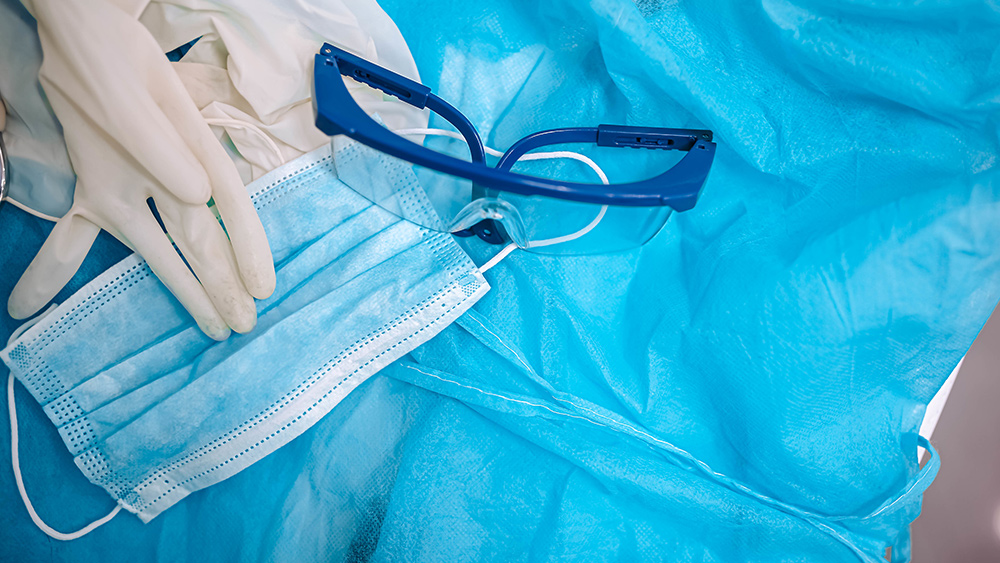UTI prevention: What happens to your bladder and kidneys if you don’t treat a UTI?
05/02/2020 / By Evangelyn Rodriguez

A urinary tract infection (UTI) affects any part of the human urinary system such as the bladder, kidneys, ureters or urethra — the tube connecting the bladder to the urethral opening on the external genitals where urine exits. Most UTI cases involve the bladder (cystitis) and the urethra (urethritis) and, due to human anatomy, affect women more often than men.
When a UTI affects the bladder, the condition is often described as painful and annoying. Besides having a strong, persistent urge to urinate, people with UTI may also feel pelvic pain (common in women) and a burning sensation when urinating. Their urine may also appear either dark or cloudy, have a strong smell or even contain blood.
However, UTIs don’t always cause symptoms, which makes it problematic. While asymptomatic UTI often disappears on its own, in some cases, it spreads from the bladder to the kidneys, where it can cause permanent damage or even organ failure.
UTI complications: pyelonephritis and urosepsis
Asymptomatic UTI can cause symptoms later on, especially when the infection reaches the bladder or the kidneys. By then, treatment with oral antibiotics is extended to 14 days instead of the usual seven days to get rid of the infection completely. There are times, however, when UTI can also result in both a high fever and dehydration. When this happens, hospitalization, intravenous injection of antibiotics and administration of fluids are necessary.
The two most common causes of UTI are the bacteria Escherichia coli and Klebsiella pneumoniae, which are commonly found in the gastrointestinal tract. While they are relatively harmless in the gastrointestinal tract, they can cause severe infections if they are spread to other organs.
For instance, E. coli, which usually causes cystitis, can cause permanent damage if it infects the kidneys and impairs their function. The body relies on the kidneys to do a variety of important tasks, such as filter blood, maintain overall fluid balance and create hormones that help produce red blood cells. When the kidneys stop functioning properly, it can cause fluid retention, which leads to elevated blood pressure, waste buildup and, eventually, kidney failure.
Chronic infection of the kidneys is known as pyelonephritis. This painful and often dangerous condition can cause the kidneys to swell and even allow bacteria to enter the bloodstream. Pyelonephritis due to UTI is marked by blood in the urine, frequent urination with very little output and low blood pressure.
When untreated UTI or pyelonephritis causes bacteria to enter the bloodstream, it leads to a condition known as urosepsis. Besides the common UTI symptoms, urosepsis also causes pain on the lower sides of the back, extreme fatigue, trouble breathing, rapid heartbeat, confusion, anxiety and high fever. Urosepsis can also progress to severe sepsis, which can lead to septic shock or multi-organ failure.
UTI prevention and home remedies
UTI is a common condition, especially among women. Statistics show that about 50 percent of women worldwide have suffered from a UTI at least once. But that does not mean that the condition can’t be avoided. Being able to recognize its symptoms can help you seek treatment early before the infection has spread to other organs.
It is possible to reduce your risk of UTI. Here are some useful tips on how to prevent it:
- Always keep yourself hydrated. Drinking plenty of water can help you flush out bacteria from your urinary system.
- Observe proper hygiene. Wash your private area regularly and wear clean, dry underwear.
- For women, when cleaning your vaginal area, wipe from front to back to prevent E. coli from entering the urethra.
- Empty your bladder completely and as often as possible.
- Urinate after sex.
Physicians typically prescribe antibiotics to treat UTI. However, there are natural remedies that you can use to deal with it at home. Here are some of the most effective, according to scientific studies: (h/t to MedicalNewsToday.com)
- Proper hydration
- Frequent urination
- Cranberry juice
- Probiotics (supplements and fermented food products)
- Vitamin C
- Proper hygiene
UTI, in its early stages, can resolve itself, but treating it immediately as soon as you detect its symptoms can save you from possibly life-threatening complications. To prevent UTI, keep yourself hydrated at all times, practice proper hygiene and take probiotics and vitamin C supplements to boost your body’s ability to fight bacterial infections.
Sources include:
Tagged Under: bacterial infections, bladder, bladder health, kidney damage, kidney failure, kidney health, kidney infection, kidneys, men's health, natural health, prevention, pyelonephritis, remedies, tips, Urinary Tract Infection, urosepsis, UTI, women's health




















